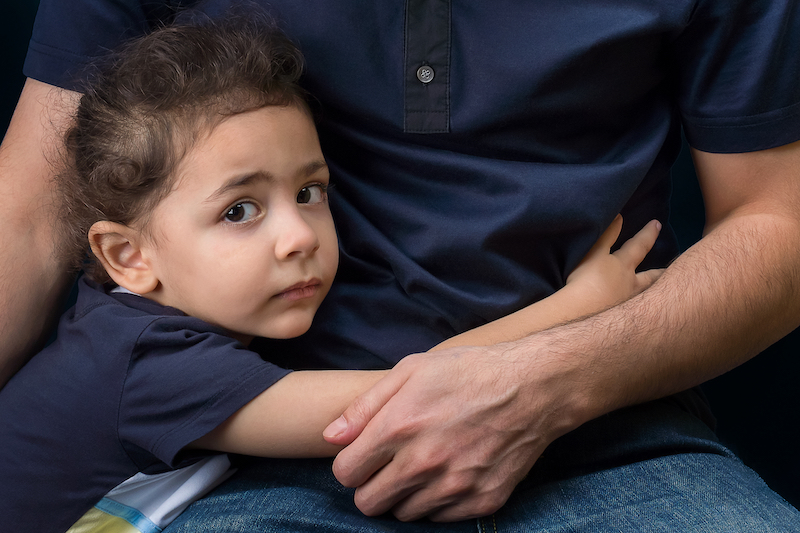How Divorce Affects Children and Ways To Support Them

Divorce can be a life-altering event for parents, but children are also profoundly affected. Each year, over one million children suffer through their parents’ divorce. They suffer due to fear and confusion about the changes.
It impacts every facet of their lives, encompassing their emotional, psychological, and social well-being. As parents, it’s crucial to understand these impacts and provide the necessary support.
In this blog post, we will discuss how divorce affects children and how to help them during this difficult time.
Emotional Responses
Different age groups of children usually respond to divorce with distinctive emotions:
Preschool Children
They are generally unable to understand the separation. They usually ask about the absent parent and might have eating and sleeping problems. As they grow, they might act out, have nightmares, and fear abandonment.
School-Age Children
They usually blame themselves for the separation of their parents. Their mood changes rapidly, and they are generally angry about the circumstances. They may also withdraw socially and fantasize about their parents reuniting. As a result, they feel sad and abandoned, which affects their mental health and grades.
Adolescents
At this age, they often blame one of their parents for the separation. They understand the reasons for the breakup, but cannot accept the circumstances. They may even try to reunite their parents. It often leads to feeling angry, resentful, isolated, and depressed. They may also engage in risky behaviors like drug use.
Coping Mechanisms
Children develop ways to handle challenges as they go through difficult times. Some coping mechanisms that children may adopt are:
- Withdrawal from society. They isolate themselves from society to avoid feeling vulnerable.
- Acting out. They misbehave to redirect their struggles and pain.
Academic Performance
Divorce brings significant changes to children’s lives. They have to deal with emotional, mental, and social challenges at the same time. All these factors increase their stress and make it hard for them to concentrate on their studies. As a result, their academic performance may decline.
Social Relationships and Communication Challenges
Divorce can have an impact on the social lives and communication skills of children. They may become distant from their friends and struggle to form new relationships. This can be due to a feeling of insecurity and fear of loss. They may find it difficult to trust other people, as they have experienced a loss of trust in their family.
Additionally, they might face difficulties communicating and maintaining their current relationships. They often avoid conversations with their peers because they want to hide their struggles and emotions. They may even avoid discussing anything with their parents due to fear of upsetting them.
How To Support Children Going Through Divorce
Although divorce is unpredictable for any child, there are ways to support them and help them cope with its adverse effects.
Custody Arrangements
Arizona law splits custody into two categories: legal decision making and parenting time. Legal decision means making decisions regarding the child’s medical, education and religious upbringing, while parenting time means spending time with the child. These child custody arrangements affect the well-being of the children.
Creating a parenting plan that prioritizes the best interests of your child during divorce can provide stability in their life. If your ex-spouse does not cooperate, you might consider working with an experienced Phoenix divorce lawyer. They can guide you through the complex custody process and ensure that your child’s best interests are protected.
Creating a Supportive Environment
There are several ways to create a supportive environment for children going through divorce:
- Involvement in children’s lives:
Parents should actively involve themselves in their children’s hobbies, check their academic progress, and be available to listen to their concerns. As a result, their child won’t feel abandoned.
- Avoid any arguments in front of the children:
You must avoid arguing with your ex-spouse in the presence of your children. It could have a negative impact on their mental health.
- Do not blame your ex-spouse:
Refrain from blaming your ex-spouse in front of your children. They could develop resentment toward them. Additionally, it could lead to them not trusting anyone in the future.
Conclusion
Understanding the impact of divorce on children is crucial for parents. Recognizing the challenges children may face, parents can take proactive steps to support them. As a result, children will be better equipped to adapt to the changes and develop resilience to tackle future challenges.
Don’t wait to contact an experienced divorce attorney from The Law Office of Cosmas Onyia if you have concerns about the well-being of your children.

